What Are You Really Chasing - Efficiency or Authenticity?
Byung-Chul Han's philosophy on the modern struggle between achieving more and connecting deeper
TL;DR: We often find ourselves caught between the push for efficiency, or our desire for authenticity. This week, I explore how societal pressures often push us towards maximising productivity at the expense of genuine self-expression. Byung-Chul Han’s insights reveal that our struggle to maintain personal authenticity amid external demands is not a new challenge but a timeless human dilemma. Get contemplative, find our true selves, and start prioritising things that matter to us. Hint: it’s relationship.
Just a few days ago, a seemingly harmless request from my 70-year old mum caught me off guard. “Can you download TikTok for me?” she asked, her tone casual as if she was asking for the weather forecast. Knowing my vocal disapproval of TikTok — fuelled by its addictive format and the controversies surrounding the potential bans in the U.S. — I couldn’t hide my astonishment. “Are you serious?” I replied, my voice a mixture of surprise and a touch of amusement.
She was serious. Despite her awareness of my stance against digital torrent sweeping across generations, she felt unscathed by its impacts. Yet, the signs are saying otherwise. Here was a vibrant, active woman, now wrestling with sleepless nights, erratic mood swings, and an overwhelming addiction to Korean and Chinese dramas that kept her glued to screens, even during family dinners. She claimed she was fine, unfazed by the digital overload she found herself in, yet her behaviours spoke of the silent grip of what Byung-Chul Han describes as the “digital panopticon” — pan = all, optic = seeing.
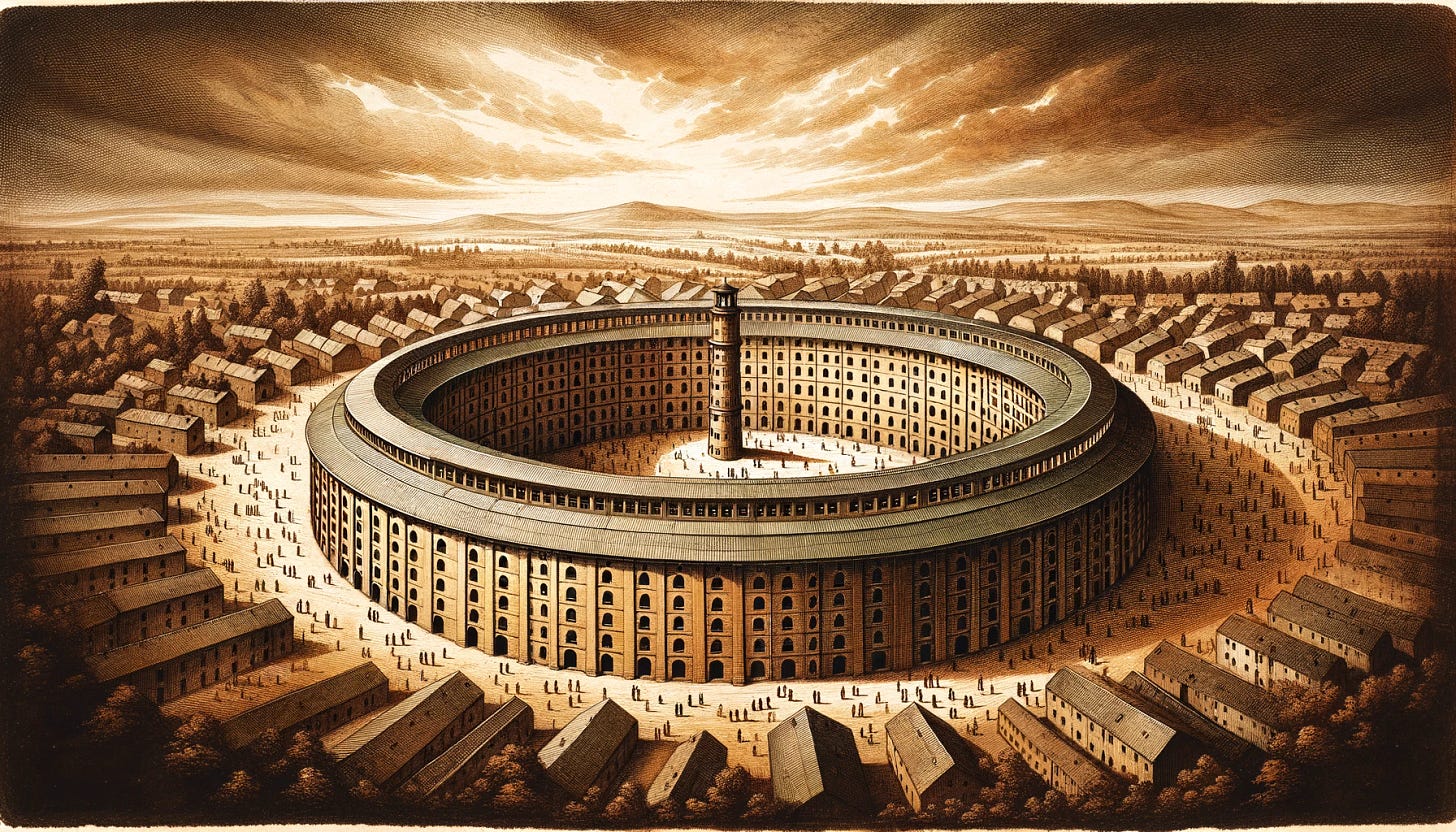
Who is Byung-Chul Han?
A South Korean-born, German philosopher and cultural theorist who is regarded as one of the most provocative and insightful critics of contemporary culture. His work is noted for its depth and accessibility, engaging with complex themes like technology, media, fatigue, and culture. He examines how societal changes influence individual psychology and community behaviour, with a particular emphasis on how neoliberalism’s demands for efficiency and self-optimisation shape our lives and social interactions.
In his critique of modern society, Han articulates how contemporary life seduces us with the illusion of freedom and choice, while simultaneously creating a web of surveillance, self-exploitation, and psychological control. You might recall my previous discussion in “The illusion of (self) control” where I examined how an understanding of one’s past is crucial in piecing together a coherent picture of one’s current self. This is particularly relevant here because as Han’s analysis suggests, the modern self is not only constructed through personal history, but is also deeply influenced by societal expectations and pressures.
This scenario with my mother gave glimpses into the profound yet subtle ways this new societal structure impacts individuals across age groups. As I pondered my mother’s insistent denial of TikTok’s influence (or other social media platforms, for the matter), I couldn’t help but see Han’s theories come to life. The platform, its endless stream of quick, digestible content, promises connectivity and entertainment but often leads users into a cycle of dependency and superficial engagement — it’s a mirror to the broader societal shift towards what Han calls the “achievement society”.
Living in An “Achievement Society”
Han argues that the “freedom to achieve anything” actually transforms into a self-imposed shackles of “relentless pursuit to perform”. Unlike past societies that controlled behaviour through explicit prohibitions1 and restrictions2 — a form of “negative power” — today’s society employs “positive power”. This modern power doesn’t outright limit what one can do; instead, it entices us with endless possibilities, suggesting that the only barriers to success are our own choices and efforts.
This shift towards an achievement-oriented culture has set us on this constant pursuit of ever-shifting goals, which, while seemingly attainable, often remain beyond our reach. We’re put into a state of perpetual exhaustion, as we find ourselves trapped on a treadmill of productivity that promises fulfillment and self-realisation but rarely delivers. I have thought deep about this a while back when I questioned my innate desire for connection over competition.
Psychopolitics and Neoliberalism
If you’ve read Huxley’s “Brave New World”, Han’s critique of where we are now isn’t far off. He discusses how neoliberalism3 and digital technologies have steered us into a new form of control — psychopolitics — where people are not overtly coerced into compliance, but are led to voluntarily align their desires with consumerist and market-driven norms (Read: “How Capitalism Shapes the Mind”).
Similar to Huxley’s dystopia, modern society often prioritises efficiency, pleasure, and conformity over individual freedom and authenticity — masking the deeper issues of alienation and identity loss. We’ve become intertwined with our consumerist and digital identities that we’ve lost sight of what it means to live authentically. We’ve become neglectful of the critical, reflective aspects of life necessary for true freedom and individuality.
Psychopolitics is a powerful means of control because it harnesses the very agency of individuals, directing our “self-improvement” efforts in ways that ultimately benefit the market — achieving more to consume more.
What should we look out for?
Digital Surveillance — in today’s digital age, companies and governments can track individual behaviours, preferences, and interactions through data collected by smartphones, social media, and various online activities. Take Cambridge Analytica’s scandal as an example to highlight how one leader’s immoral decision can impact huge global events such as the 2016’s U.S. Presidential election and the Brexit referendum. The company utilised data mining and analysis techniques to predict and influence choices at the voting box. By analysing Facebook data, they could identify personality traits, preferences, and political leanings of users. They then employed micro-targeting to deliver customised ads that played on individual fears and desires, effectively manipulating public opinion and public discourse on a large scale.
Social Media Pressures — Social media platforms are not just tools for connection; they are arenas for performance where we curate personal images that conform to societal expectations of success, beauty and happiness. It’s driven by the desire of “likes”, “shares”, and “approval”, which can dictate what we have ‘crafted’ and put out into the world. The pressure to present a perfect life can discourage authenticity, promoting a homogenised culture where each of us aspire to idealised standards of consumerist values (Read: “Consumerism and its discontents” explores how a high consumerist drive can detract a person from happiness due to poorer mental health and less satisfying interpersonal relationships).
Internalisation of Market Logic — Hans points out that market logic, where value is determined by market success, has permeated personal identities. We begin to view ourselves as brands, considering our actions and choices through the lens of ‘marketability’. This market-driven self-view encourages people to prioritise career success, financial gain, and personal advantage, often at the expense of community values, altruism, and deeper non-commercial aspirations.
Mental Health in the Burnout Society
“The Burnout Society”, originally published in German and translated into English in 2014, illustrates a pronounced contrast in the experiences of our modern life: we are either overwhelmed by failing to meet our own expectations, leading to burnout and a sense of failure, or we continuously chase new objectives. Even upon achieving our goals, the restless nature of the human mind propels us toward new targets.
We are living in this nightmarish perpetual cycle, despite accomplishments, we remain anxious, exhausted, and invariably dissatisfied. The constant pressure to perform has severely impacted our psychological well-being.
Han claims that this pressure has contributed to the rise in mental health issues such as depression, ADHD, and borderline personality disorder. The current environments have made us more vulnerable to these disorders by making us more stressed and less adapted to healthy emotional regulation (Read: my post “How Our Feelings Shape Our World” to understand why it’s important to embrace our emotions, especially the negative ones).
While I’m not in a position to clinically diagnose anyone, it’s beneficial to consider a spectrum-based perspective that many of us have likely experienced some degree of distress or dysfunction as a direct result of living and participating in today’s high-pressure, fast-paced societies.
“The real problem of humanity is the following: we have paleolithic emotions; medieval institutions; and god-like technology.”
— E.O. Wilson, a renowned biologist, called for a greater focus on emotional intelligence, and psychological resilience equipping people with the skills needed to manage our ancient emotional instincts constructively in a modern context.
Depression — can be intensified by the isolation that comes with relentless work and achievement focus. If you feel ‘depressed’, you may withdraw from social interactions to meet professional or education demands, leading to loneliness and depressive symptoms. The pressure to appear successful and happy on social media or in-person can deepen the feeling of isolation, as people tend to compare behind-the-scenes struggles with others’ curated portrayals of success and happiness. Lead to → feelings of inadequacy and hopelessness in depressive-like states.
ADHD — short for, attention deficit hyperactivity disorder, can get worse by the constant barrage of information and stimuli. The need to multitask and continuously switch attention between multiple tasks — common in today’s workplace and schools — can worsen the symptoms such as distractibility, restlessness, and difficulty concentrating. Lead to → difficulty concentrating on single tasks, persistent feeling of being overwhelmed and often falling into the mode of procrastination.
Borderline Personality Disorder (BPD) — can be influenced particularly in environments that are emotionally invalidating and highly competitive. People with BPD typically experience intense emotional swings and have a profound fear of abandonment, which can be triggered in high-pressure environments that emphasises independence and success over community and emotional support. Lead to → emotional instability, intense episodes of anger and temporary paranoia especially in environments that trigger fears of rejection or failure.
Knowing all this, what can we do?
It’s important to acknowledge that Byung-Chul Han’s viewpoints aren’t broadly recognised by mainstream media, possibly because they do not conveniently fit with any particular group that stands to gain economically from his insights. Plus, his central argument that “society shapes our psyche and behaviour” isn’t a new concept either.
“It’s no measure of health to be well adjusted to a profoundly sick society.”
— Jiddu Krishnamurti argues that adapting and conforming to societal norms is not necessarily a sign of mental well-being, especially if the society itself is flawed or unhealthy, and sometimes true health might mean resisting societal pressures and norms that do not serve our well-being.
“Most people are other people. Their thoughts are someone else’s opinions, their lives a mimicry, their passions a quotation.”
— Oscar Wilde critiques the lack of originality in human behaviour, suggesting that many of us simply adopt thoughts, behaviours, and even passions dictated by society rather than developing their own.
“The individual has always had to struggle to keep from being overwhelmed by the tribe.”
— Friedrich Nietzsche highlights the tension between individuality and social conformity, implying there’s a challenge in maintaining individual identity when society exerts strong pressures to conform.
“He who is not everyday conquering some fear has not learned the secret of life.”
— Ralph Waldo Emerson suggests growth and understanding of life involve regularly challenging societal or personal fears, indicating that our behaviours and psyches are shaped by societal fears which need to be confronted for personal development.
“We are what we pretend to be, so we must be careful about what we pretend to be.”
— Kurt Vonnegut warns that our roles and facades can shape our identities, suggesting that societal expectations, which often encourage us to assume ‘certain’ facades, can profoundly influence who we become.
What we can start doing now
Embrace Contemplation — Han advocates for more contemplation in our daily lives by finding moments of stillness and reflection to foster deeper understanding and mindfulness. This practice allows us to step back from the pressures of achievement and consumerism, providing space to reconnect with more meaningful intrinsic values — your own presence, emotions, thoughts and awareness. Start prioritising aspects of your life that give you genuine fulfillment and satisfaction such as deepening relationships with family, friends or community.
Protect Private Spaces — in his critique of the transparency society, where our privacy is continually eroded, Han stresses the importance of protecting our private spaces that allow relationships to develop more authentically, free from the performative elements often present in public or semi-public settings. It also refers to our ‘thinking space’ that allows for contemplation and critical thinking away from the influence of public opinion and social conformity. This independence is essential for developing personal views and making decisions that are truly reflective of our beliefs and values.
Challenge the Ethos of Constant Positivity — Han criticises the modern insistence on positivity, which often denies the complexity of human emotions and experiences, suggesting that we embrace a more holistic view of human emotions, recognising the value and inevitability of negative experiences and emotions. Developing the ability to accept life’s ups and downs can lead to a more authentic and grounded experience (Read: my post on how Pixar got it so right with “Inside Out” when it comes to portraying and handling of our emotions).
A timeless dilemma
We’ll be wise to recognise that the tension between achieving societal expectations and cultivating personal authenticity isn’t a new phenomenon. This struggle has echoed through the ages, shaping countless generations before us. It’s a natural aspect of the human condition — this ongoing tug-of-war to find balance between external demands and personal desires.
Being more conscious of the struggle can help us navigate our paths with greater awareness and intention. Unlike my mother, who, despite the digital age’s pitfalls, remains blissfully unaware of its deeper impacts, we have the opportunity to approach our interactions and decisions with a critical eye. It’s crucial to remain mindful of both the ‘good’ and the ‘bad’ associated with the conveniences and connectivity that define our era.
Some questions for you to ponder;
How often do you find yourself sacrificing authenticity for efficiency?
“Hacking” our way through summary sites or video explanations instead of engaging deeply with the original materials which might offer a more authentic understanding of the subject matter.
Opting for fast food or pre-packaged meals instead of taking the time to cook a homemade meal that would more authentically reflect our dietary preference and health values.
In what ways can you cultivate a deeper sense of authenticity in your daily routine?
Engage with others by focusing on building sincere connections rather than merely exchanging pleasantries. Share stories that shaped us, discuss a movie that moved us, or express honest opinions on subject we care about.
Consume media (books, news, movies, music) that resonates with our interests and values, rather than following what’s popular or trendy.
In what ways might you be compromising your core values for the sake of convenience or societal approval?
Avoiding discussions about personal beliefs or not expressing our true opinions to avoid conflict or judgement, even though we value honesty and authenticity.
Remaining silent in situations where you witness injustice or unethical behaviour because speaking out feels too risky or uncomfortable, even though we value courage and integrity.
To those of you who have struggled as I have, I hope you do share your thoughts and reflections in the comments below. What strategies have you found effective in maintaining the balance? What has been the hardest part of your fight against social norms?
My favourite finds this week
Marcus Ophelius recommended one of A24’s movie, “Aftersun” to me the other day and the ending left me pondering for many hours afterwards. It’s a story of a young father grappling with ‘hidden’ depression, the complexities of parent-child relationships and the bittersweet nature of memory. Beautifully narrated and featuring a soundtrack that instantly takes you back to the late 90’s.
Encina is one brave lady. MedCircle did an interview in 2018 about Encina’s Dissociative Identity Disorder (DID) and explained what it’s like to live with 11 personalities. Towards the end of the video, she introduces us to one of her alters, a three-year old girl named, Minnie. It shows what incredible power the brain has when one faces unimaginable trauma, and how her alters helped her through the toughest part of life. (Spoiler: ultimately, it was the support from her current partner that made all the difference) - relationships are really important, guys.
In 17th Century, when the rising Puritan movement was hostile toward theatre, as they felt that “entertainment” was sinful. Theatres were closed to prevent public disorder and remained closed for 18 years.
In Victoria England, when women weren’t allowed to vote and social norms were heavily influenced by patriarchal values that reinforced a social order that viewed women primarily as caretakers and guardians of the home, rather than as independent agents or contributors to public life.
An economic philosophy that favours minimisation of government regulation, reduction of government spending, taxes and control over the economy. In support of free market and free enterprise.



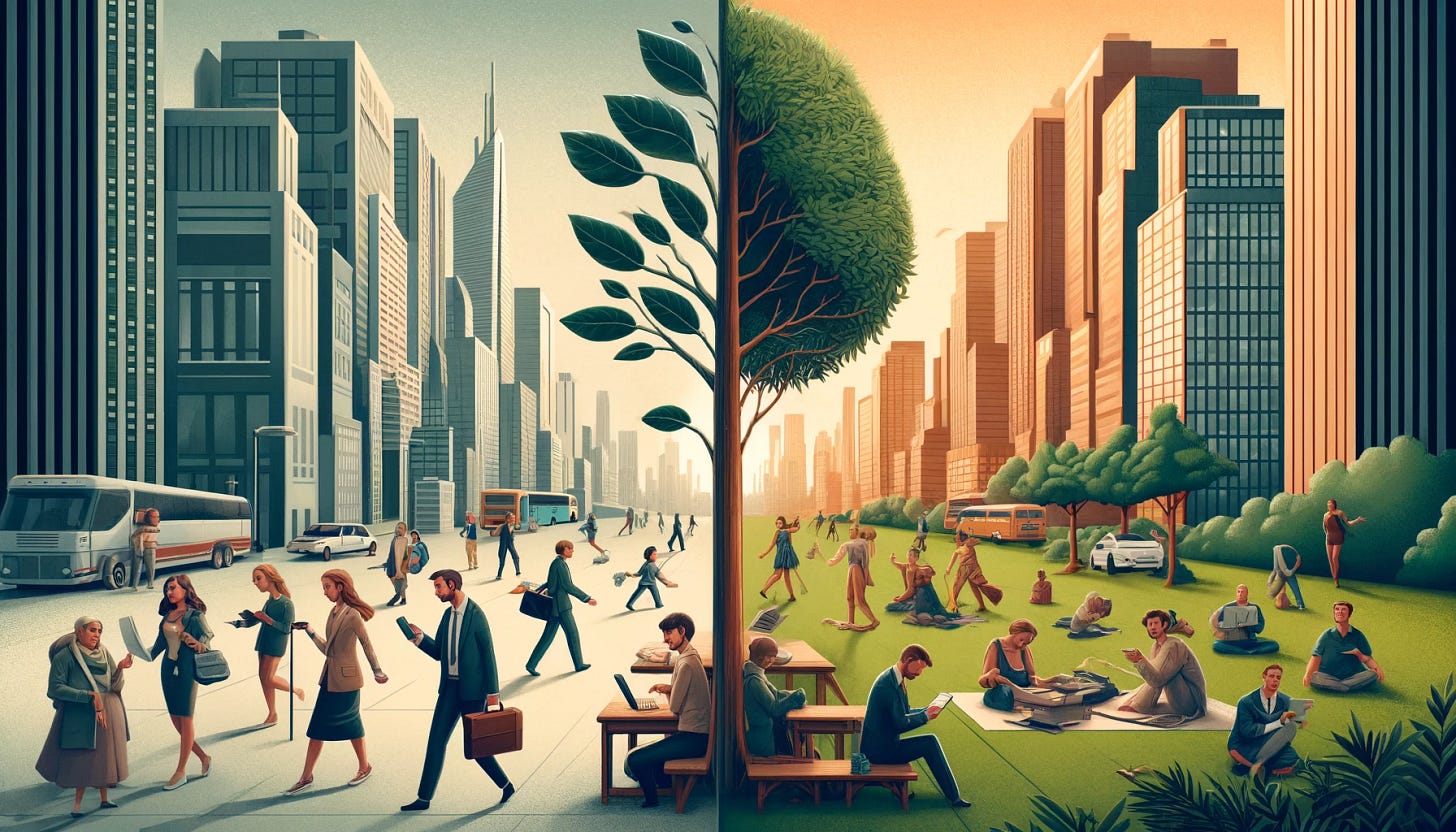
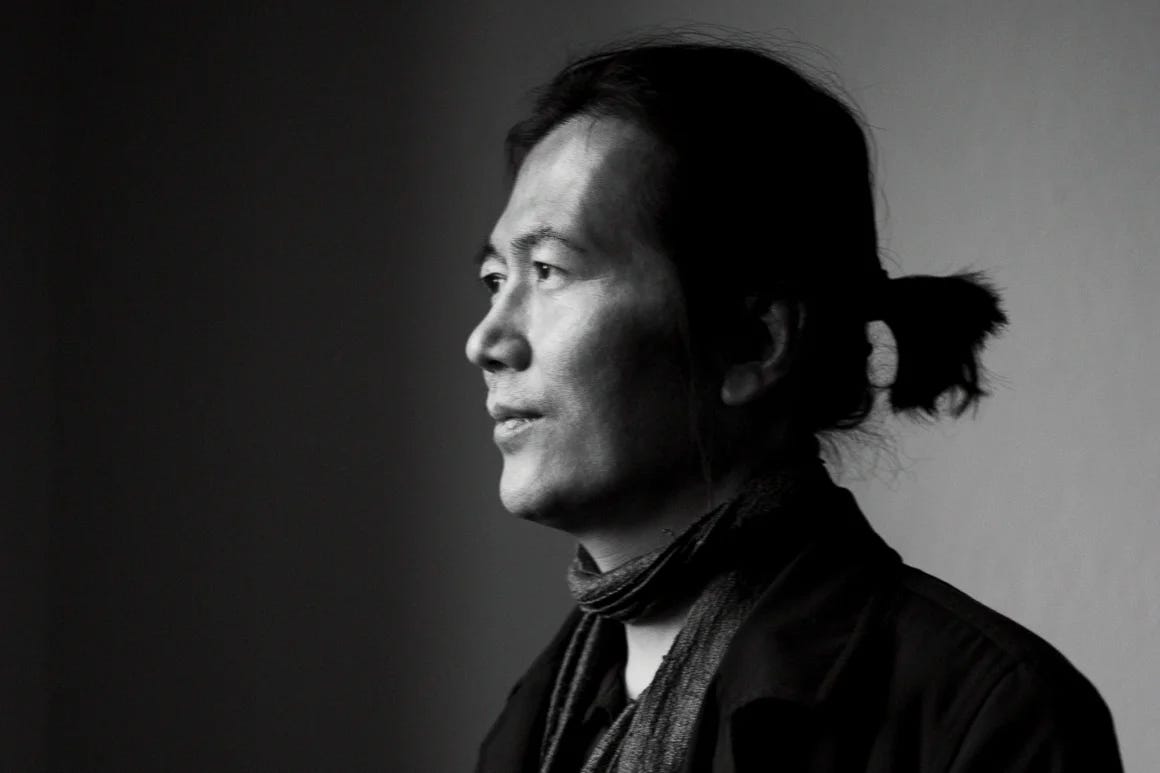
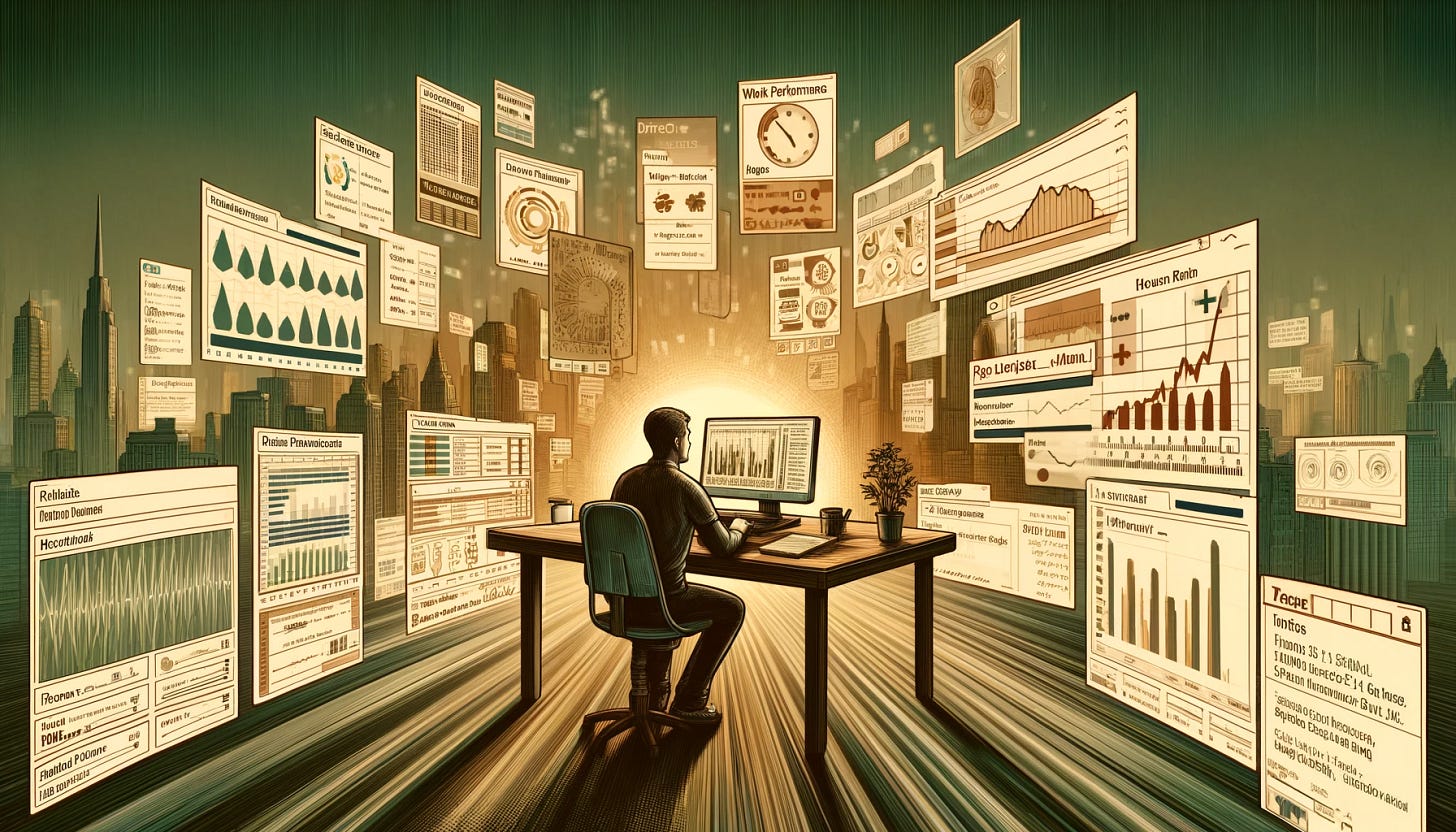

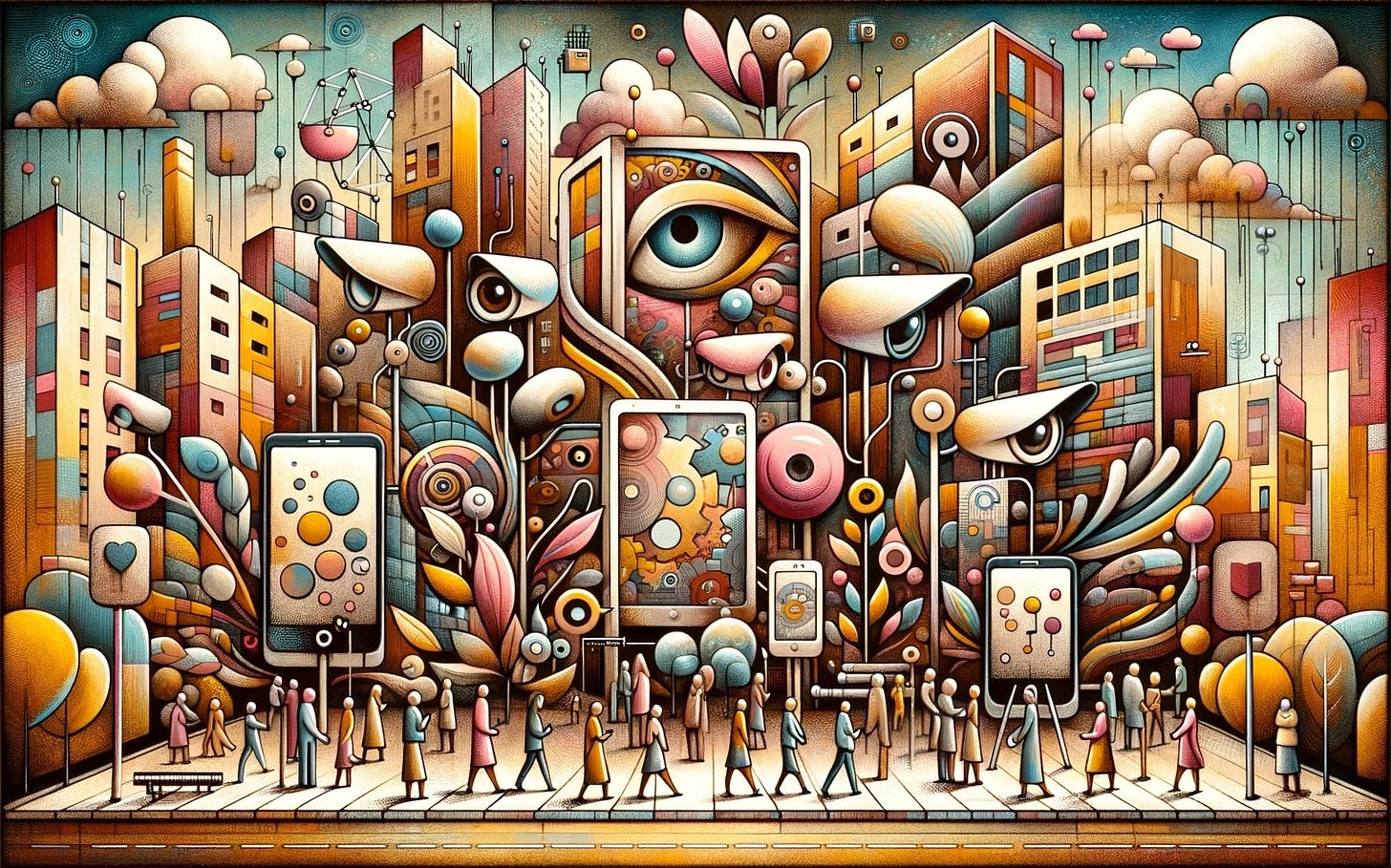





There are so many insights here which is starting to become Chusana’s signature as she frequently focuses the readers on introspection, calibrating and realigning one’s values as we continue to live and impact the people close to us and the society we participate in.
One simple yet profound and highly relevant insight:
Consume media (books, news, movies, music) that resonates with our interests and values, rather than following what’s popular or trendy.
It is a double edged sword, but with regular introspection and deliberate decisions, readers who practice this in their daily lives will cultivate independent thinking skills that I think is like a superpower in the era of algorithms and AI.
Best wishes to Chusana and readers of The Soulful Systems 💗
💓 LOVE this.
We are currently living in a world where people experience FOMO.
Sometimes I also get distracted and struggle to focus on what truly matters.
But your “questions to ponder” make me realise that I really like to embrace my true self.
Discovering my authentic identity is my top priority, and I sense that I'm moving closer to authenticity than before through reading (including your blog).
Reading allows me the time to digest and reflect. There's no pressure to think quickly and respond.
Another thing that I find it challenging is to express unconventional ideas, as my friends often take offense and vigorously defend their own perspectives. Instead of sharing ideas, it can feel like attacking each other's personalities.
Therefore, I've learned that I have to approach the ideas diplomatically with my friends. If I sense offense, I back down slightly to maintain harmony in the conversation.
However, there are times when I feel disheartened and indifferent, not wanting to engage further. It's not a good feeling, as I genuinely care about their perspectives, which is why I strive to communicate honestly to offer help.
I will try to do better, be honest and communicate better.
Thank you for these amazing materials. I find it incredibly valuable. Your effort in creating such excellent content is truly appreciated. 🙏🏼